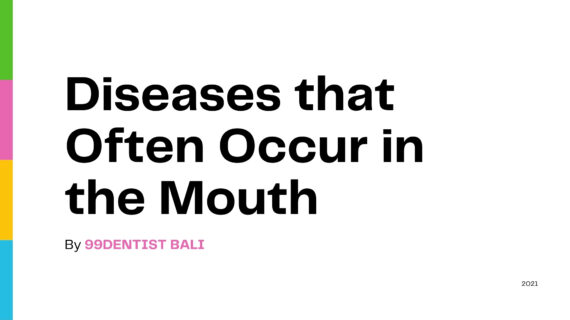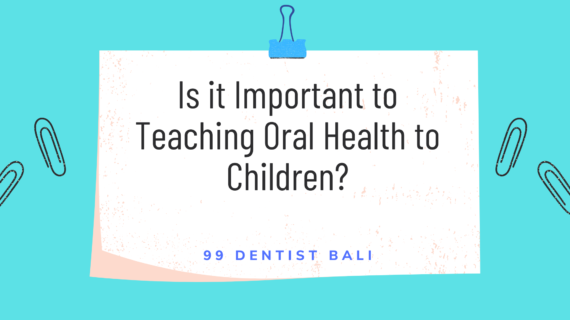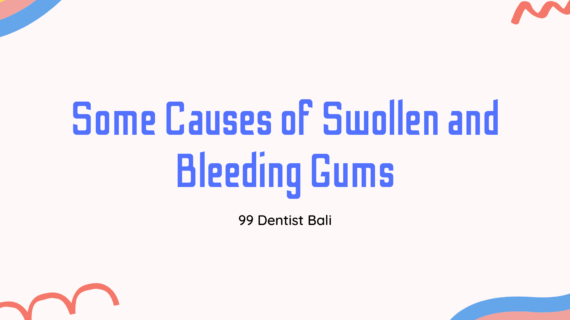First Treatment for Swollen Gums – Have you ever had swollen gums? This of course will be very disturbing, from eating to sleeping. Therefore, so that you are not bothered by the problem of swollen gums, you need to know important things about swollen gums, the causes of swollen gums and how to overcome them.
Gum or gingiva is a part of the body that is located in the mouth which consists of mucous tissue that covers the alveolar bone in the oral cavity. Gums have a pink color which indicates the presence of blood vessels behind them.
Swollen gums are usually a sign of a certain problem. Such as gum disease or infection. If you experience swollen gums, it certainly feels uncomfortable and must be treated immediately. There are many home remedies that can be done as a first step.
Various problems can cause swollen gums. Usually associated with oral health or complications of oral health problems. If you get swollen gums, you can try to do first treatment for swollen gums and also for festering gums to avoid the infections.
Also Read Strong and Healthy Teeth By Consuming These Foods
How do healthy gums look?
Basically, healthy gums are pink in color, are stable, don’t wobble to the touch and have a mottled texture like an orange peel. Apart from these things, you may have gum problems. It’s important to note that if the gums are bright red, or even bleeding, then there is inflammation.
Classification of Gum Problems
Gum disease or problems can be classified into two, namely gingivitis and periodontitis. Gingivitis is a mild problem or disease of the gums. While periodontitis is a disease of the gums that has entered a more severe level, usually accompanied by damage to the underlying bone.
One of the problems with the gums that is often experienced by many people is swollen gums. The problem of swollen gums is often ignored and taken for granted, even though if left unchecked, swollen gums can be the cause of other problems in the gums which can then spread to the teeth, even the mouth.
Some causes of swollen gums
Swollen gums are usually characterized by the presence of enlarged, protruding and bulging parts of the gums. This condition can be an early sign of chronic gum inflammation.
- Food Leftovers. Food remnants that are not cleaned properly and left between the teeth and gums will invite germs and bacteria to enter. If left unchecked, bacteria and germs will continue to accumulate and will cause swelling of the gums.
- Hormone. Swollen gums due to hormonal influences often occur in women, especially during pregnancy. Changes in hormone levels due to pregnancy are the main cause, and are usually only temporary.
- Drugs. Some types of drugs can actually cause swollen gums. You need to pay attention to this if you have taken good care of your overall oral health, but your gums appear swollen.
First Treatment for Swollen Gums
The following is the first treatment that can be done to reduce gum inflammation and relieve pain:
1. Antiseptic Mouthwash
Antiseptic mouthwash can’t remove plaque and tartar, but it can help control the buildup of extra plaque bacteria. You can buy an over-the-counter antiseptic mouthwash at pharmacies. Or buy mouthwash through the Halodoc application. Look for products that contain strong antiseptic ingredients, such as cetylpyridinium chloride.
2. Gargle with Salt Water
Salt water solution or saline with a concentration of 1.8 percent is known to be effective in improving the healing of swollen gums with pus. You can make a brine solution by adding a teaspoon of salt to a cup of cooled boiled water. You can gargle with a salt water solution three to four times a day.
3. Herbal Mouthwash
Herbal mouthwash containing tea tree oil, cloves, and basil have antimicrobial and anti-inflammatory properties. It is beneficial for gum health, including the reduction of plaque and inflammation of swollen gums.
4. Ibuprofen
Ibuprofen can be used to relieve pain, including swollen gums or periodontal disease.
5. Visit the Dentist
If the above methods don’t work to relieve swollen gums with pus, then it’s time to visit the dentist. With a dentist, you will get dental procedures to remove and treat infections.





